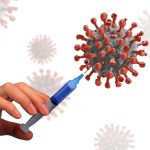The discovery of an area in the throat the size of a grain of rice that controls blood pressure could lead to a new treatment for hypertension within three years.
It will target the carotid body, a small cluster of nerves in the throat lying between two major arteries that feed the brain with blood.
A study found removing the tiny organ from some patients caused an immediate and sustained fall in their blood pressure.
The research published in the Journal of American College of Cardiology: Basic to Translational Science could lead to the first novel therapy for more than 15 years, a drug with hardly any side effects.
Dr Angus Nightingale, of the Bristol Heart Institute, said: “The falls in blood pressure we have seen are impressive – more than you would see with pharmacological medication – and demonstrate the exciting potential there now is for targeting the carotid body to treat hypertension.”
The carotid body regulates oxygen levels in the blood, and when this falls they raise the alarm of a potential emergency by signalling to the brain to increase breathing and blood pressure.
The effect is similar to having the thermostat in your home set too high all the time.
Despite being one of the body’s smallest organs, it has the highest blood flow of them all – reflecting its importance as an early warning device for the brain if there is any change to oxygen and carbon dioxide in the blood.
It is thought that in some cases the carotid body becomes overactive and sends a message to the brain to keep blood pressure high.
Explained Professor Julian Paton, of the University of Bristol: “Treating the carotid body is a novel approach and a potential game changer as we believe we are reducing one of the main causes for hypertension in many patients.
“High blood pressure treatment typically tackles the symptoms targeting the end organs such as the heart, kidneys and blood vessels, and not the causes.
“Most importantly, we have developed some unique tests to assess which patients have overactive carotid bodies.”
He said in the ‘proof of concept’ study 57 patients had an immediate drop in blood pressure, and they were all found to have a malfunctioning carotid body.
Known as the silent killer, high blood pressure or hypertension affects a third of adults and significantly raises the odds of heart attacks, strokes and other potentially fatal conditions if left untreated.
Dr Nightingale said: “This now gives us a way to personalise treatment, which is essential as there are multiple reasons why high blood pressure develops.”
The clinical trial demonstrated patients who responded to surgery had raised carotid body activity.
These patients breathed more at rest and produced exaggerated breathing responses when the oxygen level in their blood was lowered.
High blood pressure is the world’s leading contributor to mortality. In the UK, its cost to the NHS is around £2 billion per year, and it remains poorly controlled, triggering heart and kidney failure and strokes.
The World Health Organisation has identified high blood pressure as the single most important risk factor for the global burden of disease and death.
Dr Nightingale said: “Although this surgical approach to controlling high blood pressure was successful, we don’t think this will be the solution in the long term.
“We now need to find a drug that dampens down an overactive carotid body and resets the blood pressure thermostat to a normal level.”
Professor Paton’s team may have found such an alternative. Recent animal studies published last week in Nature Medicine, discovered the energy molecule ATP (adenosine tri-phosphate) appears to be responsible.
He said: “We are very excited by finding that we can turn down the alarm signals emanating from the carotid body in conditions of hypertension, yet it remains fully operational should an emergency situation occur.
“The new drug target we found within the carotid body is a receptor for the ATP molecule called the P2X3 receptor.
“This approach may lead us to the first novel anti-hypertensive treatment strategy in more than 15 years.”
Later this year Prof Paton hopes to begin a human trial using the drug, known as a purinergic antogonist, that has minimal side effects.
He explained: “The problem with high blood pressure is that it is asymptomatic, and current blood pressure drugs cause side effects, creating symptoms in patients which means they have little motivation to take them.
“A drug without side effects will them much more likely to adhere to their treatment, which will become more efficient.”
An estimated 16 million British adults have high blood pressure, a third of which may be unaware they have the condition
Patients are often at first advised to alter their lifestyle by taking more exercise, stopping smoking, cutting down on drinking and limiting the salt and fat in their diet.
GPs can also prescribe medication – often a combination of pills – but many patients skip doses because of the side-effects caused by most treatments.
Up to 15 per cent of patients – 2.5million people – also struggle to control their condition using drugs.
by Mark Waghorn





